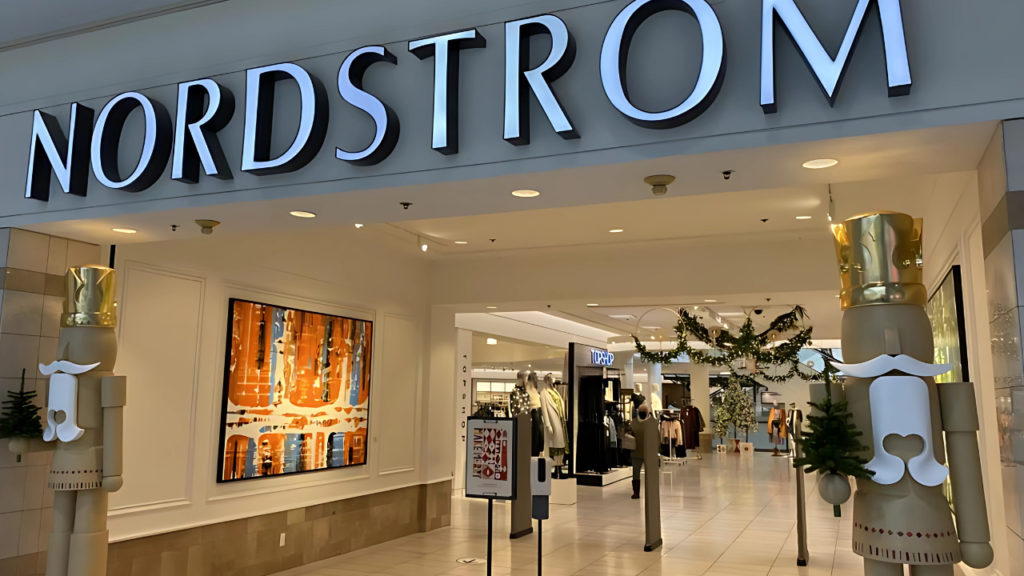The iconic American department store chain Nordstrom will soon become a private company again. In a significant move, the Nordstrom family and Mexican retailer El Puerto de Liverpool have joined forces to acquire the business for $6.25 billion. This marks a new chapter for the 123-year-old retail giant as it prepares to reshape its future away from the public markets.

Key Highlights of the Deal
- Acquiring Parties: Nordstrom family and El Puerto de Liverpool.
- Valuation: The deal values Nordstrom at $6.25 billion, including debt.
- Shareholder Compensation: Shareholders will receive $24.25 per share in cash, representing a 42% premium from its March 18 price.
- Special Dividend: A potential special dividend of up to $0.25 per share will be issued upon transaction closure.
- Ownership: The Nordstrom family will hold a majority stake after the buyout.
- Timeline: The transaction is expected to close in the first half of 2025.
Why the Nordstrom Family is Going Private
The Nordstrom family’s decision to take the company private stems from the challenges of operating in the public market. Despite its strong brand and reputation, Nordstrom has faced slowing sales and rising competition from e-commerce platforms and discount retailers.
By going private, the family aims to:
- Make strategic decisions without the short-term pressures of public investors.
- Focus on long-term investments and innovation.
- Strengthen its competitive edge in a rapidly changing retail landscape.
Nordstrom’s Market Position
Nordstrom has managed to hold its ground better than many of its peers, thanks to its upscale positioning and favorable store locations. Here’s how it compares to its competitors:
| Metric | Nordstrom | Industry Median |
|---|---|---|
| Price-to-Earnings Ratio | 12.20 | 20.5 |
| Operating Margins (3-Yr Avg) | 3.7% | 5.0% |
| Stock Price (Dec 2024) | $24.25 | – |
While Nordstrom has performed well in its Nordstrom Rack segment, e-commerce competitors like Amazon and off-price chains like TJX have made it increasingly difficult for department stores to thrive.
What This Means for the Retail Sector
The Nordstrom buyout reflects a broader trend of department stores rethinking their business models. Public companies in this sector are under immense pressure to deliver short-term returns while navigating long-term challenges such as:
- Shifting consumer preferences.
- Increasing competition from e-commerce platforms.
- Rising operating costs due to inflation and supply chain disruptions.
Recent industry moves include Macy’s scrapping a $7 billion buyout and Saks Fifth Avenue’s acquisition of Neiman Marcus. The Nordstrom family’s return to majority ownership might inspire other retailers to explore similar strategies.
What’s Next for Nordstrom?
Erik Nordstrom, the CEO, and Pete Nordstrom, the President, are optimistic about the company’s future under private ownership. Erik Nordstrom remarked, “Today marks an exciting new chapter for the business. We look forward to ensuring Nordstrom thrives long into the future.”
With plans to close the deal by mid-2025, Nordstrom will focus on:
- Enhancing its online and in-store shopping experiences.
- Expanding profitable segments like Nordstrom Rack.
- Innovating its product offerings to attract new customers.
Disclaimer
This article is for informational purposes only and does not constitute financial or investment advice. The information provided here is based on publicly available data and reports. Readers are advised to conduct their own research or consult a financial advisor before making any investment decisions. FinGuys is not a SEBI-registered entity.
For more updates and insights into the world of finance, stay tuned to FinGuys.in.